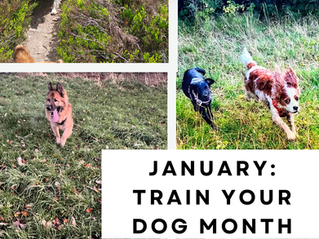Deadly for dogs!
- Dec 9, 2021
- 3 min read
Updated: Mar 28, 2022

Dogs often seem to have cast iron stomachs with some of the disgusting things you may find them eating, so it can come as a shock that some of the things that we eat or use in every day life can have terrible effects on dogs and cats. Some dogs are known to eat things every day of their life, then one day, enough is enough and they drop dead. Ensure you are aware of what is in your living environment and what could cause illness in your dog. Below is a small list of some of the main things that have caused issues.
CHOCOLATE
Lets start with the most well known. As we all know, chocolate is addictive. And it is addictive for dogs too. Once they have tasted it they will go to great lengths to get some more. However, chocolate can be very bad in dogs. The problem in chocolate is theobromide, found most heavily in dark varieties. While humans can digest theobromide, in dogs it affects the heart, nervous system and kidneys.
GRAPES AND RAISINS
Even a small amount of grapes or raisins has been found to cause sudden kidney failure, resulting in death, in some dogs. There is still ongoing research into why they are so deadly for some dogs.
ONIONS, GARLIC AND CHIVES
All the onion family can be harmful to cats and dogs. Be careful where you discard your scraps, because cooked or raw, they will harm your pet.
Onions contain thiosulphate which is toxic to cats and dogs and can cause gastrointestinal irritation and the red blood cells to burst.
PANADOL
Panadol is toxic to cats as they cannot metabolise it.
DETTOL
Dettol's harmful ingredient is phenol chloroxylenol, which is dangerous for all animals but especially cats, because felines are unable to eliminate toxins following ingestion.
ALCOHOL
Alcohol can cause issues even in small doses. It can cause intoxication, sickness, diarrhoea, and damage to the central nervous system.
CAFFEINE
Caffeine can be fatal to dogs and cats.
XYLITOL (Artificial Sweetener)
An artificial sweetener found in many sweets, diet foods, drinks, sugar-free products etc. Xylitol lowers dogs' blood sugar and brings on liver failure and blood clotting disorders.
AVOCADO
Avocados contain Persin which can cause vomiting and diarrhoea in dogs.
MACADAMIA NUTS
Macadamia nuts contain a toxin that can cause panting, weakness and affect the dogs’ nervous system and muscles.
CORN ON THE COB
Can cause choking and blockages.
COOKED BONES
Cooked bones easily splinter, which can cause constipation, internal injuries and chocking.
YEAST PRODUCTS
Yeast is highly toxic to dogs. Ingesting yeast can lead to two major issues, bloat and alcohol poisoning.
TOBACCO PRODUCTS (including e cigs)
Scientists are still investigating the effects of tobacco smoke on pets, but the amount of information available is small compared to the amount available about the effects of smoking in people. Still, research has found that tobacco is bad for dogs. Long nosed breeds like greyhounds or Doberman have the risk of nose cancer doubled if they live in a smoking household, and short nosed breeds like pugs have a higher risk of lung cancer! Cats have an increased risk of mouth cancer.
MARIJUANA
Cannabis has been found to severely affect animals, causing prolonged depression, vomiting, seizures, hyper salivation, dilated pupils among other life-threatening harm.
PLANTS
There are many plants that are highly toxic to dogs and cats. Check the plants in your garden or house and research them. Even cut plants can be toxic, so when you put those plants in a vase, beware of what they are!
ANTIFREEZE
Antifreeze can be extremely dangerous to animals. It can get in puddles and then on fur and when it is licked off the fur, it can damage their kidneys and even cause death.
SLUG PELLETS
Slug pellets are deadly for any animal that ingests them, or ingests another creature that has ingested them.
RAT POISON
If you even suspect that your dog or cat has eaten rat poison, get them to the vets immediately, as this will cause death very quickly.
If you do need some of the items above in your house, ensure you store them in a inaccessible place or have locks on your cupboards.









Comments